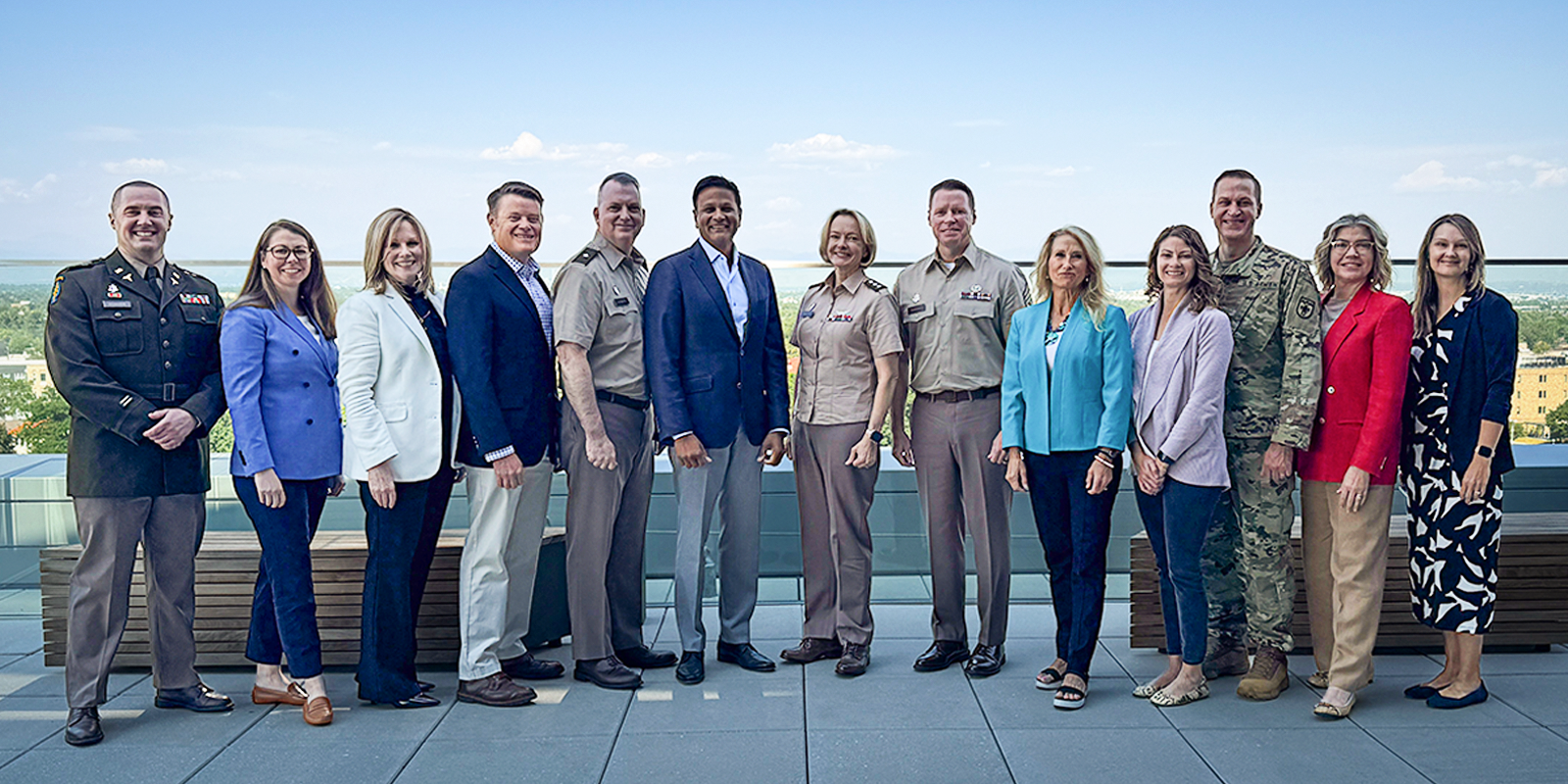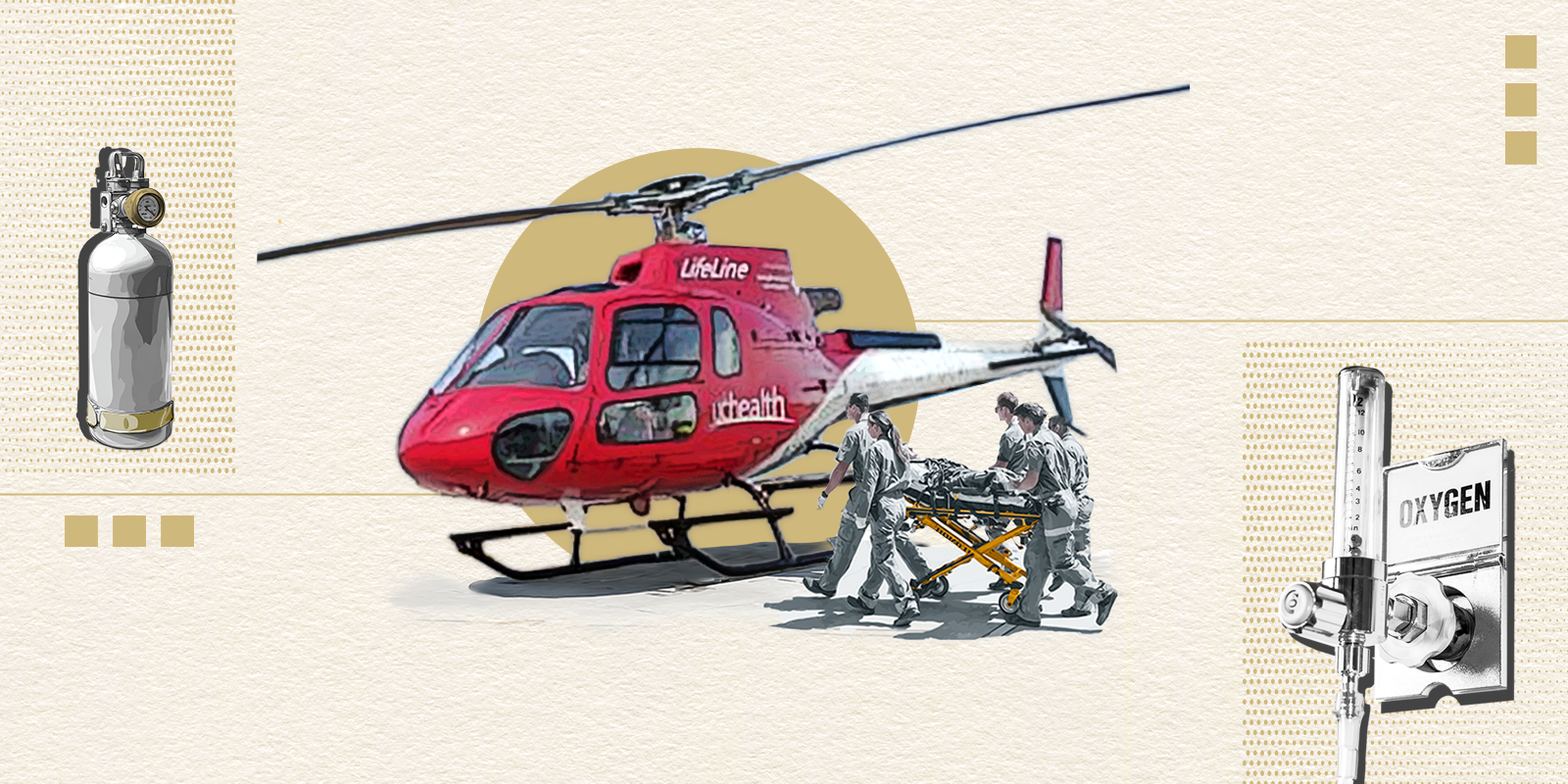Cheers erupted from a crowd gathered at the University of Colorado Anschutz Medical Campus on April 19 as leaders at the CU School of Medicine and the United States Air Force Academy (USAFA) signed an educational partnership agreement, a historic moment that will open a breadth of opportunities for both institutions.
“This is a very happy occasion for us and formalizes something that we always seek to have, which is a mutually beneficial partnership with colleagues in the state,” said John J. Reilly Jr., MD, dean of the CU School of Medicine, during the signing ceremony.
The partnership agreement will facilitate academic collaborations between CU Anschutz and USAFA, leveraging the expertise and capabilities of both institutions to further invest in developing exceptional leaders and improving the care of U.S. military service members. Under the agreement, the USAFA faculty and cadets, who are students at the academy, can participate in research and mentorship opportunities at CU Anschutz. CU School of Medicine faculty and students will be able to access facilities at the USAFA, such as the human performance laboratory and engineering facilities, to participate in research projects, mentorship opportunities, and internships for joint-funded efforts.
The partnership will also facilitate the creation of specialized joint training programs and seminars, advancing the missions of both institutions.
The partnership with the USAFA is the third educational partnership agreement the CU Center for Combat Medicine and Battlefield (COMBAT) Research has spearheaded. The other two agreements are with the Defense Health Agency and the Uniformed Services University.
“This is the first medical university that the USAFA has partnered with, and we’re proud of that,” said Col. Vik Bebarta, MD, founding director of the Center for COMBAT Research and professor of emergency medicine.
Bebarta, a USAFA graduate himself, explained how partnering with the academy will elevate the commitment to military medicine, reflecting the center’s mission to save and improve lives on the battlefield and at home.
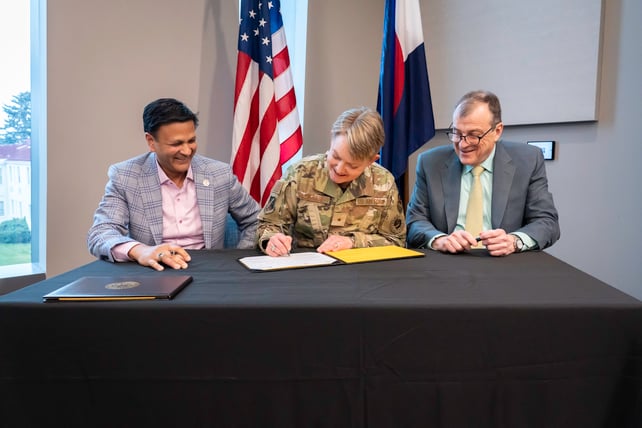
Bebarta, Letendre, and Reilly sign the educational partnership agreement.
Danielle Radovich Piper, senior vice president for external relations and strategy for the University of Colorado’s Office of the President, attended the ceremony on behalf of CU President Todd Saliman and shared enthusiasm for possibilities for collaborations between USAFA and other CU campuses.
“This is so exciting,” she said. “President Saliman extends his deep gratitude.”
Brig. Gen. Linell Letendre, dean of faculty for the Air Force Academy, describes the partnership as “absolutely imperative.” She noted USAFA’s mission to create exceptional leaders who know how to take risks and how to fail.
“Research helps you do both,” she said. “It helps you stand back up again, try it in a different way, look at the problem differently. We’re always looking for new ways for our cadets to dive into real world problems, so that’s one of the things we’re so excited about here, today.”
Col. Daniel Finkelstein, associate dean for research at the Air Force Academy, underscored the value of research to the academy.
“The Air Force has now directed the academy that research is not just a good thing to do, but actually is a part of its mission as a service academy,” he said.
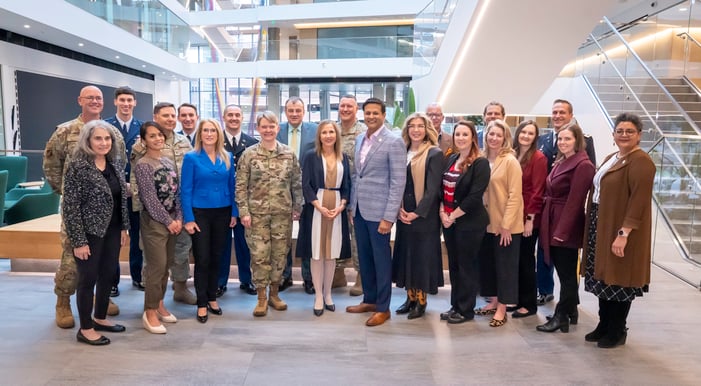
CU and USAFA teams pose for a group photo in the Anschutz Health Sciences Building lobby.
A taste of what CU can offer
Since its inception, the Center for COMBAT Research has produced more than 70 solution-driven medical research projects funded by the U.S. Department of Defense. Through its research, the center helped change 19 military clinical practice guidelines, affecting 1.7 million service members, and modernized medical training for 39,000 combat medics and first responders, all providing strong research ties back to the USAFA faculty and cadets.
Beyond conducting research, the Center for COMBAT Research is also dedicated to developing innovative leaders through its education and mentorship initiatives, such as its scholar and fellowship programs. The mentorship opportunities the center plans to facilitate with USAFA will follow a similar model.
To demonstrate the variety of educational opportunities available through this partnership, COMBAT faculty and staff offered presentations and tours to Air Force Academy leaders on Friday.
One of the Center for COMBAT Research’s primary focus areas is psychological health and readiness. The Marcus Institute for Brain Health, which provides specialty care mostly for military veterans, first responders, and active-duty service members who are struggling with traumatic brain injuries and changes in psychological health, was one of the facility visits as part of the April 19 event. Retired Brig. Gen. Kathleen Flarity, DNP, PhD, deputy director of the Center for COMBAT Research and interim executive director of the Marcus Institute for Brain Health, led the tour.
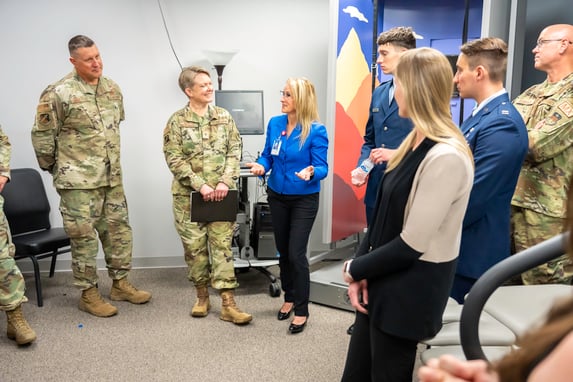
The intervention team at the Marcus Institute for Brain Health offers a variety of therapies to help patients, such as cognitive speech-language therapy, physical therapy, counseling and psychological services, and other complementary treatments such as art therapy. Flarity, pictured center, led the tour group.
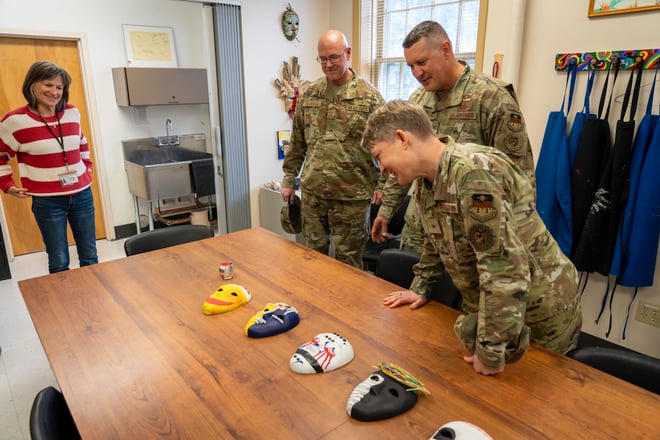
Gayla Elliot, MA, ATR, creative arts therapy manager for the at the Marcus Institute for Brain Health, showcases art therapy masks to Letendre.
“I’ve had some of the providers say that this is a sacred space and that it is such an honor to care for this population,” Flarity said.
Jay Lemery, MD, professor of emergency medicine and chief of the Section of Wilderness and Environmental Medicine, presented to USAFA leaders about revolutionary research being done on arctic medicine later in the tour.
Working in extreme temperatures can complicate life-saving interventions required for combat casualty care, he said.
From testing blood warming equipment to accessing frigid environments, the Center for COMBAT Research and the CU Department of Emergency Medicine are collaborating on several research initiatives to improve arctic medicine care.
“The goal is really to make this a multidisciplinary research platform,” Lemery said, highlighting the opportunity for collaboration with the USAFA.
Investing in future generations
Establishing the formal educational partnership agreement was exciting for leaders at CU Anschutz and the Air Force Academy, and was also a celebratory moment for Air Force Academy alumni and CU School of Medicine students and residents.
Among those celebrating was Austin Almand, a fourth-year medical student in the CU School of Medicine and a 2009 graduate from the USAFA. He said he was excited to hear about the educational partnership agreement because it means there will be more opportunities for cadets and medical students to work on collaborative research and education projects.
Also sharing in the excitement was 2nd Lt. Branson Taheri, MD, a Center for COMBAT Research fellow. Taheri graduated from the USAFA in 2019 and then attended Uniformed Services University. Now, he is completing an integrated vascular surgery residency at the CU School of Medicine.
“Up into this point in my career, I’d been at a military institution, receiving mentorship from military members all around me,” he said. “It’s been excellent to have the Center for COMBAT Research here that can really fill that role. There are so many great minds here at the University of Colorado, and to be able to combine those with unique military needs, I think, really is an excellent vehicle and recipe to have some pretty amazing results.
Anne Libby, PhD, professor and vice chair for academic affairs for the CU Department of Emergency Medicine, described the ways the Center for COMBAT Research specializes in the training of researchers, giving people the skills they need to build an externally funded research career. Libby oversees the educational partnership agreements for the Center for COMBAT Research.
“We want to help people facilitate the careers they envision for themselves,” Libby said. “We've got big problems to solve, and we cannot afford to lose the best minds.”
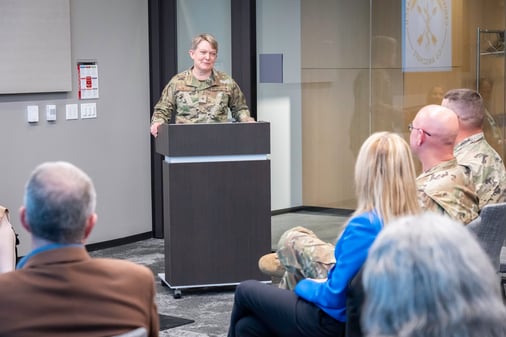
Brig. Gen. Linell Letendre addresses the audience.
Brig. Gen. Letendre shared her connection to the Center for COMBAT Research’s mission to break down barriers in conducting research and setting students, residents, and faculty members up for success.
“That’s really the investment in those generations to come,” Letendre said.

